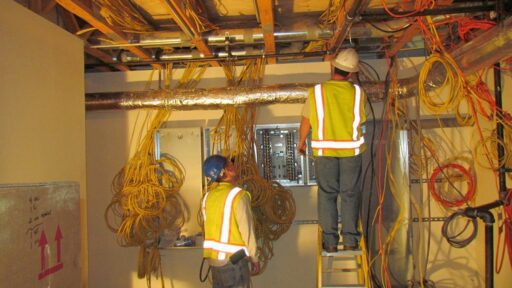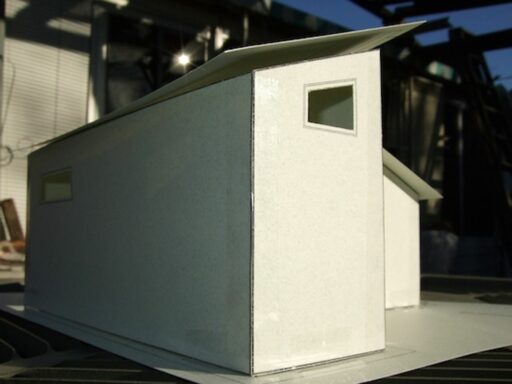The North Carolina Board of Electrical Contractors is the cornerstone of licensing, regulation, and professional development for electrical contractors in the state. This guide provides a comprehensive overview of the board’s functions, the licensing process, compliance requirements, professional development opportunities, and resources available to electrical contractors. Understanding these aspects is crucial for professionals seeking to navigate the industry successfully and maintain their standing as reputable service providers.
Key Takeaways
- The North Carolina Board of Electrical Contractors oversees the licensing process, ensuring that electrical contractors meet the required qualifications and adhere to industry standards.
- Electrical contractors must understand the different types of licenses available, the specific qualifications for each, and the procedures for application and examination.
- Compliance with regulatory standards, including the Uniform Trade Secrets Act and maintenance requirements, is essential for operating legally and ethically in the field.
- Professional development and networking events, such as workshops and community memberships, provide valuable opportunities for growth and staying informed about industry changes.
- Resources like the Help Center, webinars, and educational materials are key for contractors to stay updated and compliant with the latest industry news and regulations.
Understanding the Role of the North Carolina Board of Electrical Contractors

Mission and Responsibilities
The North Carolina Board of Electrical Contractors is pivotal in ensuring that the electrical contracting industry maintains high standards of practice. Its primary mission is to safeguard the public by regulating the qualifications and practices of those in the electrical contracting field. The Board is responsible for issuing licenses to qualified applicants, enforcing state electrical standards, and providing oversight to ensure compliance with safety regulations.
- Establishing and enforcing licensing requirements
- Conducting examinations and certifying applicants
- Overseeing continuing education
- Investigating complaints and taking disciplinary actions
The Board’s commitment to integrity and accountability is reflected in its dedication to continuous improvement and public safety.
The Board’s responsibilities extend beyond mere enforcement; it also plays a crucial role in shaping the future of the industry through strategic partnerships and educational initiatives. By fulfilling these duties, the Board helps to foster a culture of excellence and professionalism within the electrical contracting community in North Carolina.
Composition and Structure
The North Carolina Board of Electrical Contractors is structured to ensure a comprehensive oversight of the electrical contracting industry within the state. The Board is composed of members who are appointed by the Governor and represent various sectors within the industry, including licensed electrical contractors, public members, and representatives from related organizations.
Members serve staggered terms, which allows for both continuity and the infusion of fresh perspectives. The Board’s composition is designed to balance industry expertise with public representation, ensuring that the interests of both the electrical contractors and the consumers are adequately protected.
The Board’s structure is pivotal in maintaining the integrity and professionalism of the electrical contracting industry in North Carolina.
Jurisdiction and Enforcement
The North Carolina Board of Electrical Contractors (NCBEC) wields significant authority when it comes to jurisdiction and enforcement within the state. The Board ensures compliance with the National Electrical Code (NEC), which is a critical component of electrical safety and standards. The NEC’s enforcement varies by jurisdiction, and it is essential for contractors to learn where the NEC is enforced.
Enforcement actions by the NCBEC can include a range of measures from injunctions to civil or criminal penalties, depending on the severity of the violation. These actions are designed to uphold the integrity of the electrical contracting industry and protect public safety.
The Board’s jurisdiction extends to any duty or liability related to electrical contracting within the state. This includes oversight of various claims and legal proceedings that may arise in the course of business.
It is important for electrical contractors to understand that the choice of forum for resolving disputes is also governed by the NCBEC. This can have significant implications for how and where legal actions are pursued.
Navigating the Licensing Process

Types of Licenses and Qualifications
In North Carolina, the journey to becoming a licensed electrical contractor involves understanding the various types of licenses available and the qualifications required for each. The state offers licenses that cater to different levels of expertise and scopes of work, ensuring that electrical contractors can find a path that aligns with their professional goals and experience.
- Limited: For contractors handling projects up to $25,000.
- Intermediate: For projects up to $150,000.
- Unlimited: No monetary limit on project size.
Each category has specific educational and experiential prerequisites. For instance, the Unlimited license demands a more comprehensive understanding of electrical systems and often requires a bachelor’s degree in an electrical-related field or equivalent experience.
The application process is rigorous, designed to ensure that only qualified individuals are granted the privilege to operate within the state. It includes a thorough review of the applicant’s background, educational qualifications, and work history.
It’s important to note that for contracts over $30,000, general contractors must obtain a license by submitting an application and meeting specific requirements. This is to maintain high standards of safety and professionalism within the industry.
Application Procedures
The application procedures for obtaining a license from the North Carolina Board of Electrical Contractors are designed to ensure that all candidates meet the necessary qualifications and standards. Applicants must first complete the required documentation, which includes proof of education and, in some cases, evidence of insurance coverage. The process is thorough and requires attention to detail to avoid any delays or issues.
To streamline the application process, the Board provides an automated system for submitting and tracking applications. This system is outlined in the applicable appendices and subparts of the Board’s regulations. Below is a simplified representation of the automated and manual references for various application components:
| Reference | Automated | Manual |
|---|---|---|
| A-1 | ✓ | ✓ |
| C | ✓ | ✓ |
| D | ✓ | ✓ |
| F | ✓ | ✓ |
| G | ✓ | ✓ |
| J | ✓ | ✓ |
It is essential for applicants to verify that all information provided is accurate and up-to-date. Any discrepancies may lead to the withdrawal of approval, and the applicant will be given an opportunity to submit additional information or arguments.
Candidates are encouraged to familiarize themselves with the specific requirements for the type of license they are seeking, as these can vary significantly. For example, the requirements for electrical contractors may differ from those for plumbing or general contractors.
Examination and Continuing Education Requirements
To maintain a high standard of professionalism and safety, the North Carolina Board of Electrical Contractors mandates that all licensees adhere to strict examination and continuing education requirements. These requirements are designed to ensure that electrical contractors remain knowledgeable about the latest industry standards, codes, and practices.
- Examination: Before obtaining a license, candidates must pass a comprehensive examination that assesses their understanding of electrical systems, codes, and safety regulations.
- Continuing Education: Licensed electrical contractors are required to complete continuing education units (CEUs) to renew their licenses. The number of CEUs varies depending on the type of license held.
It is essential for electrical contractors to demonstrate continuous compliance with these educational standards to uphold the integrity of the profession and the safety of the public.
The Board provides resources and guidelines to assist contractors in preparing for examinations and selecting approved continuing education courses. Staying informed and compliant is not only a regulatory requirement but also a professional responsibility that contributes to the contractor’s growth and the industry’s advancement.
Compliance and Regulatory Insights

Understanding the Uniform Trade Secrets Act
The Uniform Trade Secrets Act (UTSA) is a critical piece of legislation for electrical contractors in North Carolina, as it provides a legal framework for the protection of trade secrets. Understanding warranty coverage for NC general contractors is essential. It encompasses various aspects such as scope, transferability, registration, customer service, financial aspects, and legal standards. Compliance and transparency are key for contractors to safeguard their proprietary information.
In the context of electrical contracting, trade secrets can range from customer lists to unique methods of installation or proprietary technology. The UTSA helps to prevent the unauthorized disclosure or misappropriation of such secrets, which is often a difficult and unpredictable legal challenge. As collaborations with third parties increase, so does the risk of trade secrets becoming known to competitors or being inadvertently disclosed.
The protection of trade secrets is vital to maintaining a competitive edge in the electrical contracting industry. Without adequate safeguards, businesses risk losing their unique advantages and suffering material adverse effects on their operations and financial health.
Administrative Fees and Records Reproduction
The North Carolina Board of Electrical Contractors mandates certain administrative fees for various services, including the processing of applications and the reproduction of records. These fees are essential for the maintenance and administration of the board’s services and are subject to change.
It is crucial for applicants and licensees to stay informed about the current fee structure to ensure compliance and avoid any processing delays.
Below is a summary of common administrative fees:
- Application processing fee
- License renewal fee
- Fee for records reproduction
- Examination fee
Applicants seeking a license by reciprocity, such as those from Florida, must be aware that while they may be exempt from the technical examination, a fee is still required for the application process. This fee supports the verification of qualifications and the maintenance of high standards within the profession.
Compliance with Standards and Maintenance Requirements
Ensuring compliance with standards and maintenance requirements is a critical aspect of operating as an electrical contractor in North Carolina. Contractors must adhere to applicable standards specifications to maintain their license and uphold the safety and reliability of electrical services.
- Comply with statutory and other legal requirements.
- Assure quality assurance and quality control adequacy and independence.
- Satisfy stakeholder expectations.
- Reflect consideration of cost and economics.
It is essential for contractors to stay informed about the latest standards and to implement a robust system for quality assurance and control. This not only safeguards compliance but also enhances the reputation and trustworthiness of their services.
Contractors should regularly review their practices against the current regulations to ensure they are not only meeting but exceeding the industry benchmarks. This proactive approach to compliance is beneficial for the longevity of their business and the safety of their clients.
Professional Development and Networking Opportunities

Benefits of Networking for Electrical Contractors
Networking within the electrical contracting industry can be a powerful tool for business growth and professional development. Building relationships with peers, suppliers, and industry leaders can lead to new opportunities, shared knowledge, and increased visibility in the market.
- National Electrical Contractors Association | NECA: As a member of NECA, electrical contractors join a community of over 70,000 firms and 650,000 electrical workers. This association provides a platform for networking, advocacy, and education, which can be invaluable for staying ahead in the industry.
- Upcoming Events: Keeping an eye on the Compliance Network Safety Calendar allows contractors to plan for and attend important industry events, fostering connections and staying informed about safety and compliance updates.
- Local Connections: Engaging with local businesses and recruiters can open doors to new projects and collaborations, as seen in the Boston area where companies maintain a list of contacts to assist with housing and other needs.
Networking isn’t just about exchanging business cards; it’s about building a community that supports each other’s growth and success. By actively participating in networking opportunities, electrical contractors can enhance their reputation and establish a robust professional network.
Events and Workshops
The North Carolina Board of Electrical Contractors (NCBEEC) offers a variety of events and workshops aimed at professional development and industry networking. These gatherings provide invaluable opportunities for electrical contractors to enhance their skills, stay updated on industry trends, and connect with peers.
For instance, the NCBEEC will hold a Laws & Rules of Electrical Contracting continuing education class on March 14, 2024, live online. This session is crucial for those looking to stay compliant and understand the legal aspects of the trade.
Upcoming events include:
- April 9, 2024, 1 p.m. – Title TBC
- April 10, 2024, 10 a.m. – Workshop: Getting Started in Policy Engagement
- April 19, 2024, 9:30 a.m. – Multi-Level Mediation, Negotiation and Diplomacy: Training Workshop
- May 20, 2024, 9 a.m. – Workshop: Mastering the Essentials of Grounded Theory
These workshops are not just about learning; they’re about growing your professional network and finding new avenues to apply your expertise.
Each event is designed to cater to the diverse needs of electrical contractors, whether it’s understanding complex methodologies or engaging in policy discussions. Mark your calendars and take advantage of these opportunities to advance your career.
Joining the Safety & Compliance Community
Becoming a part of the Safety & Compliance Community can be a transformative step for electrical contractors aiming to stay ahead in their field. Networking within this community opens doors to a wealth of knowledge and resources that can significantly enhance safety practices and compliance understanding.
- Interact with compliance experts to resolve regulatory questions.
- Reference the Compliance Network Safety Calendar for important dates.
- Unlock premium content with a Compliance Network EDGE membership.
By engaging with peers and experts, contractors can stay informed about the latest safety standards and regulatory changes, ensuring their services remain top-notch.
CarolinaPower’s commitment to safety and innovative solutions exemplifies the culture of growth and leadership that thrives within these communities.
Resources and Support for Electrical Contractors

Accessing the Help Center
The Help Center serves as a pivotal resource for electrical contractors seeking guidance and support. It is designed to provide answers to common questions, facilitate access to a wealth of information, and offer assistance with various aspects of licensing and compliance.
- For detailed guidance on examination procedures, contractors can refer to the Examination Information Handbook, a comprehensive resource published by the NC State Board of Examiners of Electrical Contractors.
- The Help Center also hosts a range of free live webinars and workshops, tailored to enhance professional knowledge and skills.
- An extensive library of resources allows contractors to dive into topics at their own pace, effectively functioning as a masterclass on relevant subjects.
The Help Center is more than just a query resolution facility; it’s an educational hub designed to empower electrical contractors with the knowledge and tools necessary for professional growth and compliance.
Contractors can easily access the Help Center through the Board’s website, where they can also find information on pricing, membership, and how to sign up for additional services.
Exploring Webinars and Educational Materials
The North Carolina Board of Electrical Contractors provides a wealth of webinars and educational materials designed to enhance the knowledge and skills of electrical contractors. These resources serve as a virtual masterclass, allowing professionals to learn at their own pace and focus on areas most relevant to their practice.
Participants can expect a range of interactive experiences, from in-depth discussions on the outcomes of educating scientists and engineers to practical sessions on writing effective cover letters and dealing with peer review. The sessions are designed to be highly interactive, with opportunities for small-group exercises and discussions.
The webinars are not only a platform for learning but also a venue for sharing experiences and best practices among peers.
For convenience, here is a schedule of upcoming webinars:
- CGHE Webinar Series: March 20, 2024, at 2 p.m.
- Publication School Sessions: Running from 12:30-17:00 BST, with comfort breaks.
These sessions are a testament to the Board’s commitment to the continual professional development of electrical contractors in North Carolina.
Staying Informed with Industry News and Updates
In the rapidly evolving field of electrical contracting, staying abreast of the latest industry news and updates is crucial for maintaining compliance and ensuring safety. The North Carolina Board of Electrical Contractors provides a wealth of resources to keep professionals informed.
-
Website featuring a variety of contractor categories. This online hub is a treasure trove of information, including safety insights specifically tailored for electrical contractors. It’s a one-stop-shop for staying up-to-date with the latest safety protocols and prevention techniques.
-
Promotes home safety and prevention of electrical hazards. The board’s commitment to safety extends beyond the professional sphere, emphasizing the importance of home safety and the prevention of electrical hazards to the broader community.
By regularly visiting the board’s website and subscribing to newsletters, contractors can ensure they never miss an important update or piece of news that could impact their business or the safety of their work.
Conclusion
Navigating the intricacies of the North Carolina Board of Electrical Contractors’ licensing process can be a complex endeavor, but with the right guidance and understanding, it becomes a manageable task. This guide has aimed to demystify the steps and requirements involved, providing a clear pathway for aspiring electricians and contractors. Remember, staying informed about the latest regulations and industry standards is crucial for compliance and success. Whether it’s understanding the Uniform Trade Secrets Act or keeping abreast of new compliance dates and standards, a proactive approach will serve you well. As we’ve seen, networking and leveraging resources like webinars and workshops can also unlock valuable insights and opportunities. With this knowledge in hand, you’re now better equipped to embark on your professional journey with confidence, ensuring that your work not only meets the legal requirements but also contributes to the safety and integrity of North Carolina’s electrical services.
Frequently Asked Questions
What is the mission of the North Carolina Board of Electrical Contractors?
The mission of the North Carolina Board of Electrical Contractors is to safeguard the life, health, and property of the public by ensuring that those who perform electrical contracting services are properly trained and licensed.
How do I apply for an electrical contractor’s license in North Carolina?
To apply for a license, you must submit a completed application form to the Board, meet the specified qualifications for the type of license you are seeking, and pass the required examination.
What are the continuing education requirements for electrical contractors in North Carolina?
Electrical contractors in North Carolina are required to complete continuing education courses to maintain their license. The specific requirements can vary based on the type of license held.
How does the Uniform Trade Secrets Act impact electrical contractors?
The Uniform Trade Secrets Act protects proprietary information such as business methods or technical knowledge. Electrical contractors must ensure they do not infringe on trade secrets in the course of their work.
What are the fees for records reproduction according to the Administrative Rules of South Dakota?
The fees for records reproduction are outlined in ARSD Article 74:08, which details the costs associated with copying and distributing administrative records.
How can I join the Safety & Compliance Community for electrical contractors?
You can join the Safety & Compliance Community by signing up on the relevant website, which provides access to trending news, educational content, and networking opportunities tailored to electrical contractors.





